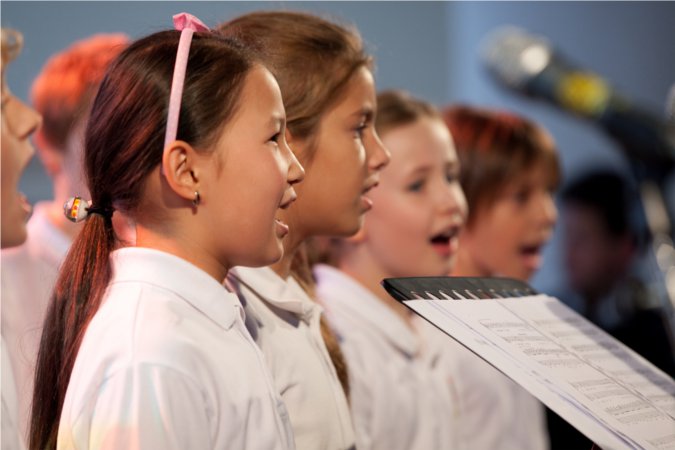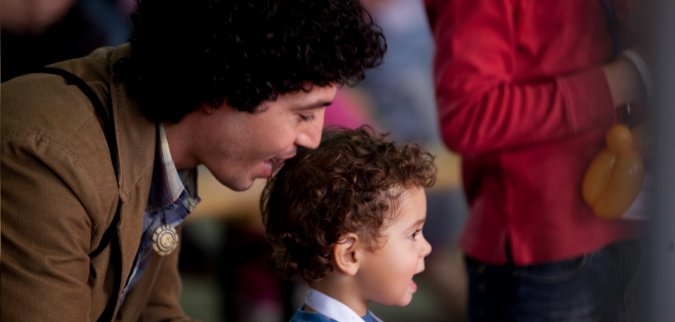Only when you go from knowing one language (monolingual) to becoming fluent in at least two languages (bilingual) can you truly appreciate how your world expands with increasing proficiency in the second language. The information that becomes accessible and the opportunities that become available make the effort of learning languages worth the while. Furthermore, you can develop relationships with people who you could not connect with as a monolingual. Connecting with people of various cultures enriches you as a person. It encourages you to consider different perspectives on important life matters. Suddenly, you realize how much our views are influenced by our native cultures. No geography or history class can be more engaging than narratives of our multicultural friends. It comes as no surprise that many parents wish for their children to function in more than one language. This article is written for all of you, who are bilingual, who have bilingual children or who want to know more about bilingual development of speech and language. You may want to know whether your bilingual child’s languages are developing as expected at a given age. You may wonder whether you are doing all the right things to help your child flourish in his/her languages. Can exposure to more than one language cause a language disorder? What should I do if my child presents with a speech disorder? Researchers working in the field of speech-language pathology and bilingualism provide some answers to these questions.
What does it mean to be bilingual?
First of all, you may wonder whether you or your children belong into the category of “bilinguals”. What competency in languages is required to be considered “bilingual”? Many people think that being “bilingual” means speaking two languages perfectly or as well as the monolinguals (a person speaking one language). However, many experts on bilingualism now think that a person, who can function in each language according to given needs, may in fact deserve the label “bilingual”. Bilinguals are not like two monolinguals in one person! Achieving a monolingual’s competence in each language is generally almost impossible for bilinguals. This is because when two or more languages reside in one mind, the languages modify each other, with interference going from one language to the other language. It is inevitable for bilingual speakers to have some gaps in vocabulary, grammar and cross-language interference in pronunciation, vocabulary and grammar depending on language exposure and pattern of use. Does it mean that the faith of bilinguals is to speak neither of their languages perfectly? Yes, this is true to some extent. However, the minor imperfection seen in bilinguals can be easily compensated by their ability to function in more than one language.

Will bilingualism put my child in a disadvantage?
When parents make decisions about bringing up their children bilingually, they sometimes report concerns about their children being different and disadvantaged whenever their children’s performance is measured against that of monolingual children. These concerns are legitimate. Despite the fact that bilingualism is now becoming more common than monolingualism, an overwhelming amount of services in the field of education and healthcare are still tailored to the needs of monolinguals. Many professional programs do not train future service providers on how to care for the bilingual population. Biased evaluation, diagnostic error and faulty treatment decisions tend to be more common in this population. Let’s consider the assessment of speech and language. The hardest challenge for your speech therapist will be to tell whether your child is faced with a language disorder or has simply a different pattern of language acquisition, which falls within the normal variation of bilingual language development. The professional should have knowledge of how to perform bilingual assessment and detailed knowledge of what is typical for bilingual speakers. Both or all languages should be assessed. Assessment that ignores capacity in one language does not truly reflect person’s communication skills and will not lead to appropriate treatment.
Can bilingual upbringing cause a language disorder?
Empirical research provides absolutely no ground to claims that the bilingual population is more vulnerable to speech and language disorders. In fact, the recovery process from aphasia (a language disorder seen in stroke patients) is better in bilinguals. We have evidence from research that bilingualism may actually slow down the cognitive decline seen in people with Alzheimer disease. Reviews of a broad range of literature concluded that normally developing bilingual children acquire two languages with the same effort as they acquire one language. Even children with significant developmental delays were able to acquire two languages with no greater delays than monolingual children. It is not true that children need to be gifted in order to handle bilingual upbringing. The key to development is the opportunity to hear and use both languages in familiar, interactive environments. The quality and quantity of exposure is what matters the most.

How can I tell that my bilingual child is at risk for a language disorder?
Bilingual language exposure does not cause a language disorder but language disorders do occur in bilinguals. How can you tell whether your bilingual child is doing well in language development? The claim that bilingual children start to speak later than monolingual children has no scientific evidence. Even though the effort of learning a language with bilingual children is divided between two languages, we still expect bilingual children to meet the deadlines in achieving the major language milestones. There is a reason for concern if your child’s language development diverts significantly from charts describing typical language development. For example, even bilingual children are expected to use simple words (does not matter in which language) for at least 50 concepts by the age of 24 months. They are expected to start combining words into two – word utterances by the age of 24 months. Even though they may still work on pronunciation of more challenging sounds, their speech should be 100% intelligible by the age of 5 years.
Bilingual child with a language disorder
Your child’s language acquisition is not as expected for his/her age? Will the child grow out of it? Is treatment necessary? Children with language impairment do improve as they get older. It is true that you do not usually hear adults say: “Me go school”. However, longitudinal studies of individuals who were diagnosed with a language disorder in the pre-school years offer considerable evidence that language disorders persist as children grow older but change in their expression. Children with behavioural issues are 10 times more likely to have language impairment than other children. Over 70% of poor readers in grade 2 have a history of language deficits in kindergarten. Some professionals may be tempted to advise parents to drop one language. Do not feel bad if you drop one language or if you choose to carry on against the expert’s advice and raise your children bilingually. Actually, there is no scientific evidence that dropping one language will remedy the problem. Children who have problems with two languages generally also have them with one. Besides, if the language that is dropped is the native tongue of the primary caregivers, there is a major concern whether the primary caregivers can and want to provide good language model in the non-native language. The best way to help children with language disorder is to provide a good language model, learn to use strategies that facilitate language development and cooperate with a speech language therapist, who is knowledgeable about servicing the bilingual population.
Good luck!!!!
If you made the decision to teach your children a second language, you are giving them a priceless skill. It will help them think in different ways and give them access to information and opportunities. It will give them the link with their roots if the language is the language of their ancestors. Enjoy the experience of seeing your bilingual children grow. More information on bilingual language development and speech therapy in English can be obtained from Alena Netolicka at cmc@cmcpraha.cz.
Author: Alena Netolicka, BSc. (Hons.), M.H.Sc.
Speech Language Pathologist – Canadian Medical Care
Contact: (+420) 235 360 133, cmc@cmcpraha.cz












 Reading time: 6 minutes
Reading time: 6 minutes 

























